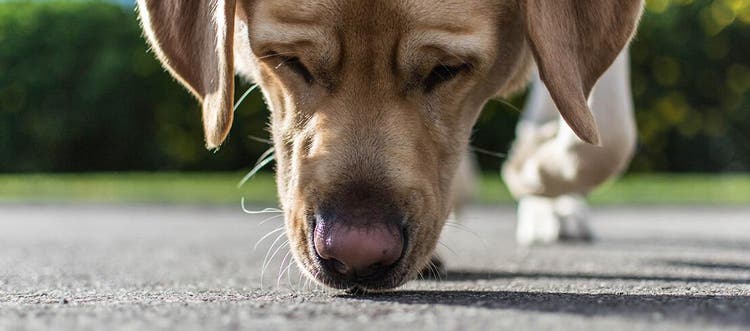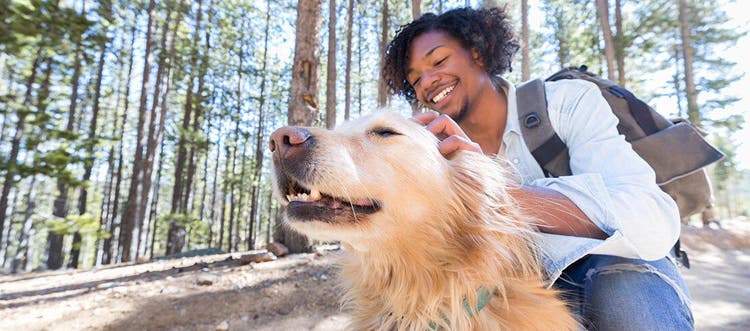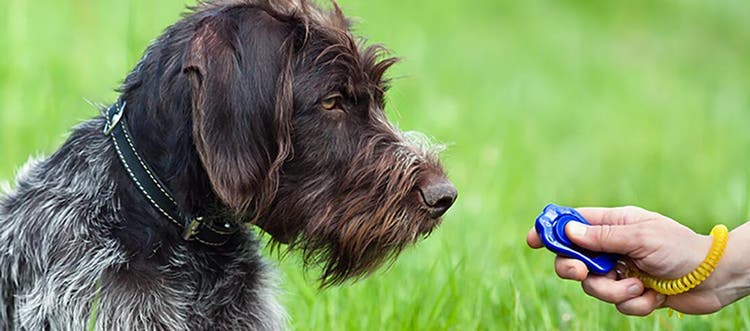Nearly all dogs will become infected with roundworms at some stage in their lives. Since this parasite can also affect you and your family, it’s important to know what to look for. The most common roundworm found in dogs is known as Toxocara canis.
Roundworm symptoms in dogs and puppies
Roundworms are common parasitic worms infecting dogs, and your four-legged family members can pick them up remarkably easily. But unfortunately, you may not be able to tell whether your dog has them! The symptoms of roundworms are more apparent in puppies, but adult dogs may not show any signs at all.
How do dogs become infected?
While any dog of any age can get roundworms, this parasite is most common and most serious in puppies, which can be born with the infection (passed through their mother’s placenta) or receive it from their mother’s milk.
Adult dogs are easily infected, too. They can accidentally swallow roundworm eggs when they sniff around outside or eat an infected rodent or bird.
Signs of roundworm infection in dogs
Diarrhoea and vomiting
Adult dogs usually don’t show signs of a roundworm infection, but diarrhoea and vomiting may occur in some cases. Puppies are much more at risk, and diarrhoea is a common sign. Additionally, puppies may sometimes vomit up whole worms or pass them in their stool. It’s worth remembering that both vomiting and diarrhoea are also signs of many other common health issues, so always be sure to check with your veterinarian if your dog is showing any of these symptoms.
Poor growth and poor condition
Puppies with roundworms often show signs of poor growth and may:
- Be small for their age
- Have a pot belly
- Have a dull coat in poor condition
Coughing
In very young puppies, the larval stage of the roundworm parasite may migrate through the lungs, which can lead to pneumonia, coughing and trouble breathing. As with all the above symptoms, it’s always worth consulting your vet if you spot any of these warning signs, as they can indicate other health issues too.
Treating roundworms
Deworming treatments are available that can kill this common parasite. Since many puppies are born with roundworms and acquire more from their mother’s milk, it’s important to start treating them from 2 weeks of age. MilbemaxTM tablets are a popular product for deworming dogs, including young puppies (who are at least 2 weeks of age and weigh over 0.5 kg), and have been trusted by vets for over 20 years. Treatment needs to be repeated at regular intervals while they are feeding on their mother’s milk, and as they grow – always check the label directions for full instructions.
Deworming adult dogs is also essential to help reduce the risk of not only roundworms but other gastrointestinal worms as well. It also helps reduce the risk to human health, as some worms, including roundworms, can cause disease in people. The ideal approach to deworming will vary depending on factors like location, your dog’s health and lifestyle, and the type of treatment you prefer. Options include:
- Continue with Milbemax tablets for protection against all major gastrointestinal worms (refer to label for dosing recommendations)
- Apply AdvocateTM spot-on monthly (from as early as 7 weeks of age) for protection against most gastrointestinal worms, as well as fleas and heartworm
- Give CredelioTM PLUS chewable tablets (safe for dogs and puppies from 8 weeks of age) monthly for protection against most gastrointestinal worms, as well as fleas, ticks, mites and heartworm
Always read product leaflets for full instructions.
Good hygiene is also essential, always wash your hands after playing with your dog and before mealtimes, and regularly picking up your dog’s droppings is essential in minimising the spread of worms.
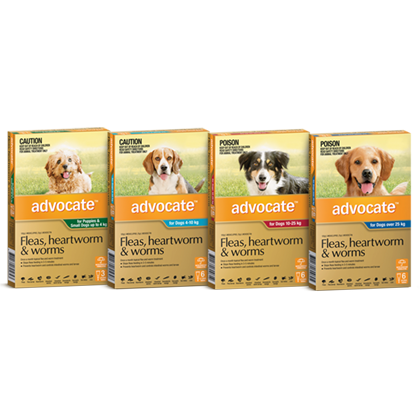
Advocate for dogs
Advocate provides fast relief from fleas, prevents deadly heartworm and helps protect your dog and your family from most intestinal worms
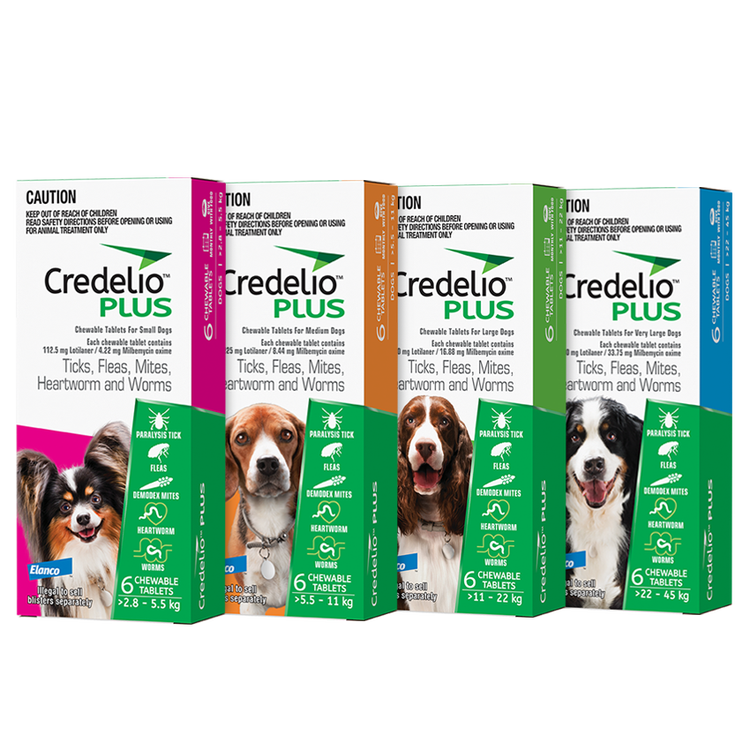
Credelio™ Plus 4 in 1 protection in the smallest chew
Keeps your dog protected from ticks, fleas, demodex mites PLUS heartworm and intestinal worms.


